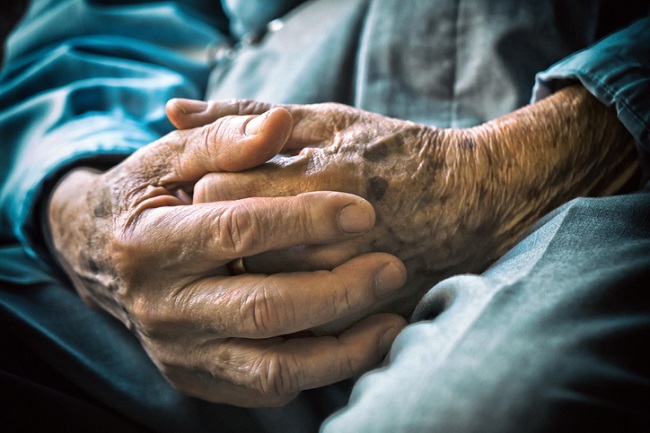
Every part of our body changes with age. The same goes for our skin. As we age, our skin loses fat, elasticity, and moisture. It also becomes more prone to disease. Older skin is less oily, thinner, and more vulnerable. It bruises easily and takes longer to heal if injured. Although skin disorders are common among older adults, a few studies have recently established a link between aging and skin disease. Some skin problems, like dark spots, are prominent but can be harmless. Other symptoms may require attention and treatment. These are eight skin conditions that the elderly, loved ones, and caregivers should know:
1. Adult Acne
Usually, acne problems are confined to the teenage years. But often, thousands of adults in their 30s, 40s, and 50s also battle acne. Experts say that those with diets high in sugar, cow milk, saturated fats, and trans fats may experience the problem of acne in adulthood. Such foods increase sebum production, leading to blocked pores that trigger acne. Any hormonal imbalance that affects the skin’s oil production may also result in acne. Typically, such shifts are felt during pregnancy, menstruation, stopping or starting birth control pills, menopause symptoms, or conditions like ovarian cysts, polycystic ovary syndrome, etc.
Tips for Prevention
- Wash your skin twice daily with a non-drying, non-comedogenic cleanser. Non-comedogenic ingredients ensure that the product does not clog your skin pores.
- Avoid heavy face lotions, creams, or makeup that can clog your pores. Choose your hair products carefully too.
- Whether you have had acne since your teenage or just developed the problem – it is best to consult a dermatologist to get rid of acne.
2. Bruising in the Older Adults
Common aging changes in the skin make it thinner and have less fat to cushion our blood vessels. The blood vessels, too, get more fragile and are easily broken. Even a minor bump or scrape can cause extensive bruising in older adults. Usually, the bruises are harmless and heal by themselves in a few days. Older adults who habitually take over-the-counter blood thinning medicines or pain medications like ibuprofen may experience bruising frequently.
Tips for Prevention
- If you have bruised your skin, apply a cold compress to the affected area. It will slow down the blood flow and slowly reduce the size of the bruise. It will also help reduce swelling.
- Avoid pain medications such as non-steroidal anti-inflammatory drugs (NSAIDs) and blood thinning medicines.
- If your bruise takes up a large part of your limb, keep it elevated for a few hours.
3. Dryness & Itching
Dry skin is one of the most common skin problems in older adults. With age, skin loses sweat and oil glands that moisturize the skin. Sometimes, health conditions like diabetes, kidney diseases and their medications also cause dry skin and itching. Dryness can make your skin feel itchy, cracked, and painful, but you should avoid scratching. Scratching may break the skin and put you at risk of skin infections.
Tips for Prevention
- Avoid hot showers and take shorter, cooler showers using moisturizing soap.
- Choose a rich body cream or ointment and use it daily. Lotions may be ineffective and should be avoided.
- Stay hydrated. Drink at least seven glasses of water every day.
- If you think your heating system makes the air in your home dry, use a humidifier.
- If the itching is persistent, talk to your doctor. It could be a symptom of liver, kidney, or thyroid disease.
4. Skin Cancer
Skin cancer usually develops in the epidermis or the outer layer of the skin. In younger people, the skin cells are strong enough to repair pre-cancerous cells. However, the ability of such repair gets slower and weaker in the skin with age. Elderly people who have had prolonged sun exposure may experience symptoms of the following three skin cancers:
- Melanoma
- Basal cell carcinoma
- Squamous cell carcinoma
Here is what you should watch out for:
- Look for changes in the size or appearance of a mole, irregular shapes of moles or bleeding or oozing from a mole.
- Ulcers that show the underlying tissue of the skin.
- Sores that do not heal
- Prevention
- Regular self-exams and check-ups with your doctor are crucial for catching skin cancer early on.
5. Common Skin Infections
Skin infections among the elderly can differ based on circumstances. Mostly, interdigital spaces of the body such as wrists, genitals, elbows, feet, buttocks, and axillae are affected by infections. Some of the most common skin infections at an older age are candidiasis, dermatophytosis, and bacterial and viral infections.
Tips for Prevention
- Take great care of personal hygiene. It is essential to keep the skin clean and hydrated.
- Localized infections should be reported to the doctor immediately. They will recommend an effective topical imidazole to nip the infection in the bud.
- Timely treatment and regular check-ups can help prevent skin infections or treat them at an early stage to prevent a spread.
6. Other Common Skin Disorders in Older Adults
There are some other common skin conditions in elderly adults. Some of them are mentioned below:
Wrinkles
With age, everyone develops wrinkles as the skin loses its flexibility. Smokers can have more wrinkles than non-smokers. Sometimes, chronic sun exposure can cause wrinkles to appear earlier than normal.
Facial Movement Lines
Also known as laugh lines or worry lines, these lines become more visible on your face as your skin loses elasticity. They could be vertical lines above the nose, horizontal lines on the forehead, upper cheeks or around the mouth.
Age Spots
Age spots are tiny brown spots that may appear on the face or hands as someone ages. Sun exposure is one of the main reasons for age spots.
Bed Sores
Bed sores or pressure ulcers are caused by constant skin pressure, such as on the back, by laying on the bed for long hours. Usually, older people who cannot move or walk on their own may get bed sores. Frequent rotation or re-positioning can help prevent this problem.
Self-Care Tips
Sun damage cannot be reversed; however, the skin can occasionally heal itself. Use these pointers to maintain healthy skin at any age.
- When outdoors, wear sunscreen. The best protection comes from a sunscreen with an SPF of 30 or higher.
- When outside, put on a hat, long sleeves, slacks, and UV-protective sunglasses.
- Avoid using sunlamps and tanning booths.
- Check yourself frequently for new growths and & moles.
- See a dermatologist for your skin conditions.
Krishma Patel is the Co-founder and the Superintendent Pharmacist at MedsNow, an online pharmacy in the United Kingdom that provides health and wellness products and treatments along with free online consultations.
Related Articles & Free Vermont Maturity Magazine Subscription

5 Steps to Properly Manage Blood Pressure
Free Online Hearing Tests You Can Take at Home






Comment here